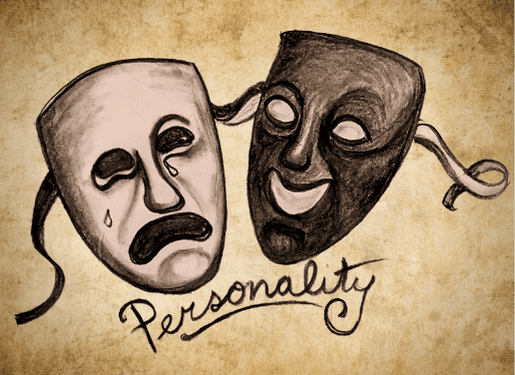Consumer Behavior | Western Technical College | 2023

Did you know that it is especially important for marketers to understand how human psychology affects consumer behavior? Concepts like personality, self-concept, and lifestyle greatly impact how people make purchase decisions. This can provide excellent insight into how to execute marketing strategies like segmentation and targeting. Read on to learn more about these interesting psychological topics and how you can apply them to your marketing tactics!
The Individuality of Personality
Personality. We all use the word, but do we actually know what it means from a psychological standpoint? Personality is the combination of emotions, thoughts, behavior, and intentions bundled together in a unique human package. It is a combination of many different traits that generally remain consistent within the person. Someone’s personality becomes apparent as they react and adapt to different situations and stimuli in their environment. For example, you can tell I have an “introverted” personality because I shrink away from loud groups at parties.
Not only do people have personalities, but brands have personalities as well! Brands are often anthropomorphized to have human traits like friendliness and dependability. Think of it as part of the brand’s “image” which they use to differentiate themselves from competitors. When a brand’s personality is congruent with the traits of its target buyer, it is a recipe for success!
Since people are so unique, marketers have found it useful to tailor content to individual tastes, instead of trying to broadly appeal to the general public. For example, inbound marketing attracts and retains customers by creating valuable content wrapped in a personalized experience. In fact, according to Hubspot, 80% of consumers are more likely to make a purchase when brands offer personalized content!
Profiling Lifestyle: it’s worth the while
Closely but not exclusively related to personality is the concept of “lifestyle.” Not only does lifestyle refer to the way in which consumers live, but also how they spend their time and money. Generally, lifestyles emerge from cultural influences. Marketers can group people by their lifestyles to create target markets and buyer personas. Think of it as stereotyping but with a practical purpose.
A useful tool to identify lifestyle factors is the VALS survey at http://www.strategicbusinessinsights.com/vals/presurvey.shtml. The VALS reveals eight common lifestyle segments based on resources and motivations. For example, my primary VALS type is the “innovators” consumer group. This means that I am motivated by ideas, self-expression, and achievement. It also means that I am very skeptical about advertising so marketers must be careful not to be too pushy in their ad tactics.
Want to know a fun way to identify common lifestyle segments in your neck of the woods? Try utilizing the PRIZM tool at https://claritas360.claritas.com/mybestsegments/. I looked up my zip code to check out the dominant lifestyle type where I live. Since I live in a very rural area, it was not surprising that the prevailing lifestyle segments were conservative, Nascar-watching, country-music-listening hunters. That sounds pretty accurate to what I have observed although it doesn’t describe me. There are always going to be anomalies in the local populations. I myself am an outlier with ideologies and traits that closely resemble the progressive “Connected Bohemians” segment. Nonetheless, I can see the benefit of using this tool to target local populations. By knowing about their interests and values, marketers can create content that appeals to their target audience.
Getting adept at Self Concept
Personality and lifestyle are both factors that can be perceived by an outside observer. But how does a person’s internal perception of themselves affect their consumer behavior? Self-concept can be defined as the totality of a person’s thoughts and feelings about themselves. This helps gives people meaning to their own identity.
So, why is self-concept so important in marketing? Consumers use products to outwardly display their self-concept to others. The symbolic interactionism perspective tells us that consumers generally agree on the shared meaning of products as symbols. Therefore, consumers use products as symbols of self-expression and are motivated to buy products that fit their self-concept.
An example of this is how people use body piercings and tattoos to differentiate themselves from the mainstream. When I see a person decked out in tattoos and piercings, I can deduce that they think of themselves as “badass” and want others to see them that way as well. Another easy way to catch wind of a person’s self-concept is to scroll through their social media feed, paying particular attention to “selfies.” This is referred to as their social self or looking-glass self.
Explore for Yourself!
In conclusion, sometimes marketers must dig a little deeper than demographics to understand their target audience. They must look at psychographic traits to understand how the consumer thinks, feels, and how they are motivated. Personality, lifestyle, and self-concept are all keys to unlocking the mysteries of the consumer mind.
Want to explore personality, lifestyle, and self-concept for yourself? Try taking the VALS and PRIZM tests at http://www.strategicbusinessinsights.com/vals/presurvey.shtml and https://claritas360.claritas.com/mybestsegments/. Comment below with the VALS and PRIZM type that describes you, and how you can use these tools in your segmentation strategies.